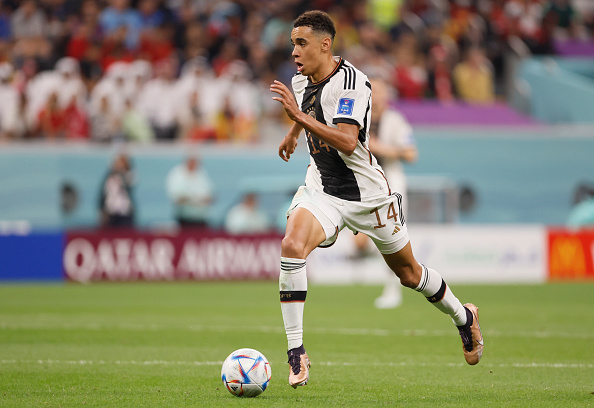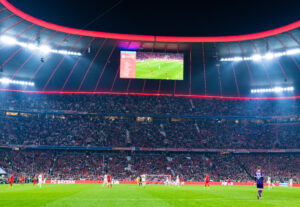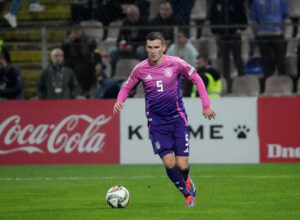It is fitting that the first post-pandemic World Cup is showing that resilience or, to use the marvellous term coined by Iain Dowie, bounce-backability is the most important attribute that any team can have. Several countries have now bounced back from first-match thrashings to triumph in their second match, including Costa Rica, Iran and Australia. Germany were not thrashed in their first game and they did not bounce back to win their second game, but their performance in drawing 1-1 with Spain was arguably the biggest bounce-back of all.
Germany Show They Remain Extremely Resilient
Germany enjoyed little or no luck against Japan in their opening match, when they really should have been two or even three goals up before the Japanese rallied to win so magnificently. However, before they played Spain, Germany enjoyed an enormous piece of good fortune, as Costa Rica, who had succumbed to Spain 7-0 in their first match, somehow beat Japan 1-0 with their only shot on target in the whole game. Keysher Fuller’s late winner meant that the Japanese had gone from giant-killers to slain giants in just one match. It also meant that even if Germany lost to Spain they would still have a chance – albeit a slim one – of reaching the knockout stages.
The removal of that immediate sense of absolute jeopardy allowed Germany not to be completely panic-stricken against the side who have replaced Italy as their Latin bogeymen. Germany had never beaten Italy in a major tournament (either a World Cup or European Championships) until they finally ended that run with a penalty shoot-out victory in the Euro 2016 quarter-final. However, they have not beaten Spain at a major tournament since the group stages of Euro 1988, so they were naturally nervous about playing them so soon after their Japan debacle.
Tiki-Taka 2.0 Is Not Yet The Match of Tiki-Taka 1.0
Of course, Spain themselves have bounced back in recent years. After crashing out of the 2018 World Cup to the hosts, Russia, they have brilliantly regrouped under Luis Enrique, reaching the semi-final of the delayed Euro 2020 and arguably outplaying eventual champions Italy before losing on penalties. Because failure is so often the father of success, it had been thought that Spain would be even better at this World Cup and that definitely seemed to be the case against Costa Rica, when they added seven goals to their typically imperious passing.
However, the match against Germany was a reminder, if it were needed, that Tiki-Taka 2.0 is not yet the match of the original Tiki-Taka, which took Spain to three successive major tournament victories a decade ago. Perhaps the single biggest difference between the two teams is that Enrique’s side does not yet have a player of the quality of “Xaviesta”. That is the compound word used in Spain to describe and combine the talents of Xavi and Iniesta, the midfield pairing at the heart of the greatest-ever Spanish side.
“Xaviesta” was so good that it is arguable that they are the greatest player of the last 20 years, rather than Messi or Ronaldo; after all, they won the World Cup that has still eluded both Messi and Ronaldo. And for all the potential of the two new Barcelona players who Spanish fans hope will eventually replace them, namely Gavi and Pedri, they have a long way to go to match the legendary feats of “Xaviesta”.
The Marvel That Is Musiala
Gavi and Pedri were not even the best young players in the match with Germany, let alone the best in the world. That was because young German winger Jamal Musiala produced another superb performance to follow his brilliance against Japan. England’s loss is definitely Germany’s gain (Musiala, who qualified for both countries, eventually chose to represent Germany) as the teenager demonstrated against Spain that he can excel even in the loftiest company.
Indeed, it was Musiala who was instrumental in Germany equalising after they had fallen behind to Alvaro Morata’s close-range opener early in the second half. First, he set up a shot for himself inside the penalty box, which Spanish goalkeeper Unai Simon was able to beat away. Then, he again wriggled into the box, before Germany’s substitute striker Niclas Fullkrug snatched the ball from off his toes and smashed it past Simon.
The Death of the Centre-Forward Is Much Exaggerated
If Musiala was undoubtedly the stand-out player in the match, the most interesting tactical development in this game between two World Cup super-heavyweights (i.e. former winners of the World Cup who hope to win it again) was that it confirmed, once more, that the death of the centre-forward in modern football has been much exaggerated. Both teams benefited hugely from the introduction of an orthodox striker who could finally put away the chances that they had been creating all game.
First, Morata’s beautiful dink over the onrushing Manuel Neuer showed the deftness of touch required by an ace finisher. Then Fullkrug’s piledriver of a shot, which was past Simon almost before he knew it had been fired, showed the importance of sheer power of shot. In both cases, the importance of having a central focal point in attack, who can also actually score goals, was firmly re-established.
Can Germany Bounce Back Completely To Reach Knockout Stages?
If Japan’s shock defeat to Costa Rica had removed the immediate threat of elimination for Germany, that threat still persists even after the team’s impressive draw with Spain. Group E is one of the tightest groups of all at this World Cup, with all four teams going into the final match with a legitimate chance of qualifying for the knockout stages.
If Costa Rica were to follow up their defeat of Japan by beating Germany, it would probably constitute the greatest bounce-back in World Cup history, after they had been thrashed by seven goals in their opening match. However, given their hugely improved performance against Spain, characterised by the continuing excellence of Musiala and the new threat provided by Fullkrug, it is far more likely that Germany will continue their own recovery by beating Costa Rica and making the last 16.
Last Word on Football recognise Qatar’s human rights abuses and instances of corruption taking place throughout the nation and in the background of the World Cup. Learn more about some of the issues surrounding the World Cup here.






